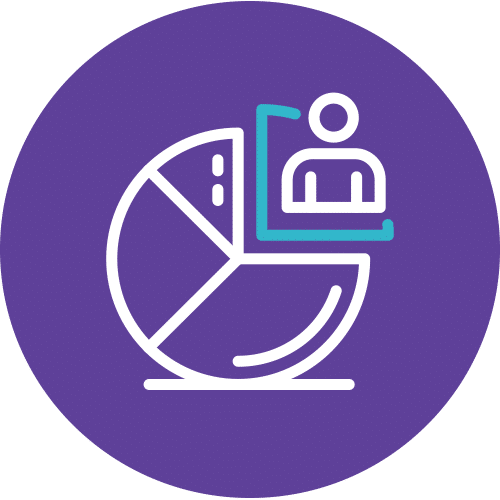Are you eager to enhance your career prospects through top-notch Power BI training? Look no further! In the MB-920T00 Microsoft Dynamics 365 Fundamentals (ERP) course, we provide a comprehensive introduction to Dynamics 365, including an in-depth exploration of Power BI training.
Power BI Training Excellence
Our course delves deeply into Power BI, the business analytics tool that can truly revolutionize the way you handle data. With our engaging and interactive approach, you’ll learn how to harness the full potential of Power BI for data analysis, report creation, and data-driven decision-making.
Why Opt for Our Power BI Training
Our Power BI training is tailored for professionals at all levels. Whether you’re a business stakeholder, recent graduate, or considering a career switch, our course equips you with the skills necessary to excel in today’s data-driven landscape. No prior Power BI experience is required – we begin with the fundamentals and guide you through advanced techniques.
Join us in the MB-920T00 Microsoft Dynamics 365 Fundamentals (ERP) course and empower yourself with the knowledge and skills to master Power BI. Your journey towards data proficiency starts right here!
Course Details
Course Code: MB-920T00; Duration: 1 day; Instructor-led
Do you want to learn more about Dynamics 365? This course will provide you with a broad introduction to the finance and operations capabilities of Dynamics 365. You will become familiar with the concept of enterprise resource management (ERP), and learn about the core capabilities of the finance and operations app. Then we will discuss each of the apps individually, including Dynamics 365 Supply Chain Management, Dynamics 365 Finance, Dynamics 365 Commerce, Dynamics 365 Human Resources, and the ERP capabilities of Dynamics 365 Project Operations. This course will include lecture and hands-on-labs.
People in different roles and at various stages in their careers can benefit from this fundamentals course. This includes business stakeholders and others who want to be exposed to the finance and operations capabilities of Dynamics 365, students, recent graduates, and people changing careers who want to leverage Dynamics 365 to move to the next level.
Audience
–
Prerequisites
Students should have a fundamental understanding of financial principles and business operations. An understanding of cloud computing is helpful but isn’t necessary.
Methodology
This program will be conducted with interactive lectures, PowerPoint presentation, discussion and practical exercise.
Course Objectives
–
Outlines
Module 1: Get introduced to the finance and operations apps
This module discusses the general capabilities of Microsoft Dynamics 365 finance and operations apps, including built-in reporting and integration with other products such as Microsoft Excel, Microsoft Word, Power BI, and Microsoft Teams.
Lessons
- Introduction
- Discover enterprise resource planning (ERP)
- Review Dynamics 365 use cases
- Exercise: Navigate the finance and operations apps
- Knowledge check
- Summary and resources
After completing this module, you will be able to:
- Discover the suite of finance and operation apps that you can use for enterprise resource planning.
- Review use cases for finance and operations apps.
Module 2: Create reports and integrate finance and operations apps
This module introduces you to the general capabilities of the finance and operations apps, including built-in reporting and integration with other Microsoft products such as Microsoft Excel, Microsoft Word, Power BI, and SharePoint.
Lessons
- Introduction
- Create and use reports, including workspaces
- Explore options for analyzing data with Power BI
- Explore options for manipulating data from within Excel
- Explore other integration capabilities
- Exercise: Excel integration
- Knowledge check
- Summary and resources
After completing this module, you will be able to:
- Describe built-in reporting capabilities.
- Describe options for analyzing data.
- Describe options for manipulating data with Microsoft products.
- Describe use cases for and integration capabilities with other Microsoft products.
Module 3: Explore Microsoft Dynamics 365 Finance core capabilities
This module introduces you to the core capabilities of Microsoft Dynamics 365 Finance, including a discussion of legal entities, the approach for managing regional tax reporting requirements, and cost accounting concepts.
Lessons
- Introduction
- Explore Finance capabilities and features
- Explore use cases for legal entities
- Handle regional tax reporting requirements
- Explore cost accounting concepts
- Explore journaling concepts
- Knowledge check
- Summary and resources
After completing this module, you will be able to:
- Describe finance capabilities and features.
- Describe use cases for legal entities.
- Describe how Dynamics 365 Finance handles regional tax reporting requirements.
- Describe cost accounting concepts.
- Describe journaling concepts.
Module 4: Explore general ledger in Microsoft Dynamics 365 Finance
In this module, you will discover the chart of accounts, and then explore the various types of financial dimensions and how they are set up. You will also look at periodic financial processes.
Lessons
- Introduction
- Identify charts of accounts
- Explore financial dimensions and dimension set concepts
- Explore periodic financial processes demo: Month end closing
- Exercise: Create a main account
- Knowledge check
- Summary and resources
After completing this module, you will be able to:
- Describe charts of accounts, including main accounts and classification.
- Describe financial dimensions and dimension set concepts.
- Describe periodic financial processes.
Module 5: Explore accounts payable and accounts receivable in Dynamics 365 Finance
This module explores the capabilities of Microsoft Dynamics 365 Finance to manage the accounting processes involved in paying vendors or suppliers for good or services received and receiving payments for goods and services delivered.
Lessons
- Introduction
- Explore core accounts payable components
- Explore vendor payments and settlements
- Explore core accounts receivable components
- Exercise: Create a free text invoice
- Explore credit and collection processes
- Knowledge check
- Summary and resources
After completing this module, you will be able to:
- Describe core accounts payable components, including vendors, purchase orders, and vendor invoices.
- Describe vendor payments and settlements, including three-way matching concepts.
- Describe core accounts receivable components, including customers, customer invoices, and free text invoices.
- Describe credit and collection processes.
Module 6: Explore expense management, fixed asset management and budgeting in Dynamics 365 Finance
Explore cash and bank management, discover the core functionality of expense management and learn how to manage fixed assets and review the budgeting capabilities of Dynamics 365 Finance.
Lessons
- Introduction
- Explore cash and bank management concepts
- Explore expense management
- Explore fixed asset management
- Explore budgeting capabilities
- Knowledge check
- Summary and resources
After completing this module, you will be able to:
- Describe cash and bank management concepts
- Describe expense management including cash advances and mobile workspaces
- Describe fixed asset management, and fixed asset creation, acquisition, and depreciation
- Describe budgeting capabilities
Module 7: Identify general capabilities of Dynamics 365 Supply Chain Management
This module introduces learners to the core capabilities of Dynamics 365 Supply Chain Management, including product masters and product variants, master planning and trade agreements and discounts.
Lessons
- Introduction
- Overview of Supply Chain Module
- Explore product master records and product variants
- Exercise: Create a new product
- Explore trade agreements and discounts
- Knowledge check
- Summary and resources
After completing this module, you will be able to:
- Describe product master records and product variants.
- Describe master planning.
- Describe trade agreements and discounts.
Module 8: Explore warehouse and inventory capabilities
This module discusses the capabilities of Microsoft Dynamics 365 Supply Chain management used to control the day-to-day operations of a warehouse, including costing methods, warehouse configuration options and inventory management.
Lessons
- Introduction
- Explore costing methods
- Explore use cases for Warehouse Management Systems (WMS) in production environments
- Explore purchase orders, item arrival journals, and cross-docking
- Explore inventory reservations, picking and packing, replenishment, and shipments
- Explore inventory counting and inventory on-hand concepts
- Explore quality management capabilities
- Explore warehouse configuration options
- Exercise: Create a purchase order
- Exercise: Create a counting journal
- Knowledge check
- Summary and resources
After completing this module, you will be able to:
- Describe costing methods including standard costing, weighted averages, last-in-first-out (LIFO), and first-in-first-out (FIFO)
- Describe use cases for Warehouse Management System (WMS) and warehouse configuration options including layout, stocking limits, and location profiles
- Describe purchase orders, item arrival journals, and cross-docking
- Describe inventory concepts including reservations, picking and packing, replenishment, shipments, counting, and inventory on-hand
- Describe quality management capabilities
Module 9: Explore manufacturing strategies in Dynamics 365 Supply Chain Management
This module discusses the capabilities of Microsoft Dynamics 365 Supply Chain Management used to implement manufacturing strategies and the tools used to manage the shop floor.
Lessons
- Introduction
- Differentiate manufacturing types
- Explore manufacturing strategies
- Explore production control elements
- Explore item tracking and tracing processes
- Explore shop floor management tools
- Explore master planning
- Exercise: Create a production order
- Knowledge check
- Summary and resources
After completing this module, you will be able to:
- Describe manufacturing types.
- Describe manufacturing strategies, including make-to-order (MTO), make-to-stock (MTS), and configure-to-order (CTO).
- Describe item tracking and tracing processes.
- Describe tools that can be used to manage shop floors.
- Describe master planning.
Module 10: Explore Dynamics 365 Commerce capabilities
This module introduces you to the core capabilities of Microsoft Dynamics 365 Commerce including channel management, distributed order management, and product assortments
Lessons
- Introduction
- Describe resource and scheduling processes
- Explore a Dynamics 365 Field Service-related apps business scenario
- Describe asset management and customer assets
- Describe Connected Field Service for Dynamics 365
- Knowledge check
- Summary and resources
After completing this module, you will be able to:
- Describe the scheduling capabilities available in Dynamics 365 Field Service
- Schedule qualified resources
- Describe the asset management capabilities available
- Explain the relationship between Customer Assets and Connected Field Service
Module 11: Explore Microsoft Dynamics 365 business-to-business e-commerce, Store Commerce and Clienteling capabilities
Learn about how Dynamics 365 Commerce can help organizations provide personalized and targeted shopping experiences in both business-to-business (B2B) and business-to-consumer (B2C) business models.
Lessons
- Introduction
- Business-to-business e-commerce capabilities overview
- Explore customer management with loyalty programs and clienteling
- Explore how to create personalized in-store customer experiences with Dynamics 365 Commerce
- Explore Dynamics 365 Fraud Protection
- Knowledge check
- Summary and resources
After completing this module, you will be able to:
- Understand the B2B digital commerce capabilities in the online channel.
- Describe loyalty and clienteling concepts.
- Describe how Dynamics 365 Commerce uses Dynamics 365 Customer Insights.
- Describe how Dynamics 365 Fraud Protection reduces fraudulent activities in the system.
Module 12: Explore Dynamics 365 Human Resources core capabilities
This module introduces you to the core capabilities of Microsoft Dynamics 365 Human Resources including the management of compensation and benefits, employee performance and ensure that your human resource programs meet changing global regulations.
Lessons
- Introduction
- Explore workers and positions
- Explore compensation and benefits capabilities
- Explore compliance features
- Explore performance management capabilities
- Knowledge check
- Summary
After completing this module, you will be able to:
- Explore workers and positions.
- Explore compensation and benefits capabilities.
- Explore compliance features.
- Explore performance management capabilities.
Module 13: Explore personnel management capabilities in Dynamics 365 Human Resources
This module introduces you to the personnel management and workforce planning capabilities of Microsoft Dynamics 365 Human Resources. Explore employee self-service, training and certification management, and support your recruitment process using LinkedIn Talent Solutions.
Lessons
- Introduction
- Explore self-service capabilities
- Explore leave and absence capabilities
- Explore employee training and certification features
- Identify integration options between Dynamics 365 Human Resources and LinkedIn
- Knowledge check
- Summary and resources
After completing this module, you will be able to:
- Describe self-service capabilities.
- Describe leave and absence capabilities.
- Describe employee training and certification features.
- Identify integration options between Dynamics 365 Human Resources and LinkedIn.
Module 14: Identify project life cycle management capabilities in Dynamics 365 Project Operations
This module discusses the core capabilities of Microsoft Dynamics Project Operations to help you manage the financial aspects of your project-based business.
Lessons
- Introduction
- Explore project-based services and project types
- Manage projects across industries
- Analyze the project lifecycle (project phases)
- Explore project sales capabilities
- Explore project contract capabilities
- Describe project pricing capabilities
- Knowledge check
- Summary
After completing this module, you will be able to:
- Describe the project lifecycle including project invoicing and revenue recognition.
- Describe project-based services.
- Describe project sales capabilities.
- Describe project contract capabilities.
- Describe project pricing capabilities.
Module 15: Explore the project planning and execution capabilities of 365 Project Operations
This module introduces you to the project execution and analysis capabilities of Microsoft Dynamics 365 Project Operations to help you optimize resource management, schedule management and time and expense management for your project-based business.
Lessons
- Introduction
- Project planning capabilities
- Project execution and analysis capabilities
- Create and manage work breakdown structures
- Explore the project invoicing capabilities
- Explore project cost tracking capabilities
- Knowledge check
- Summary
After completing this module, you will be able to:
- Describe project planning capabilities.
- Describe project execution capabilities.
- Describe the work breakdown structure.
- Describe project invoicing capabilities.
- Describe project cost tracking capabilities.










